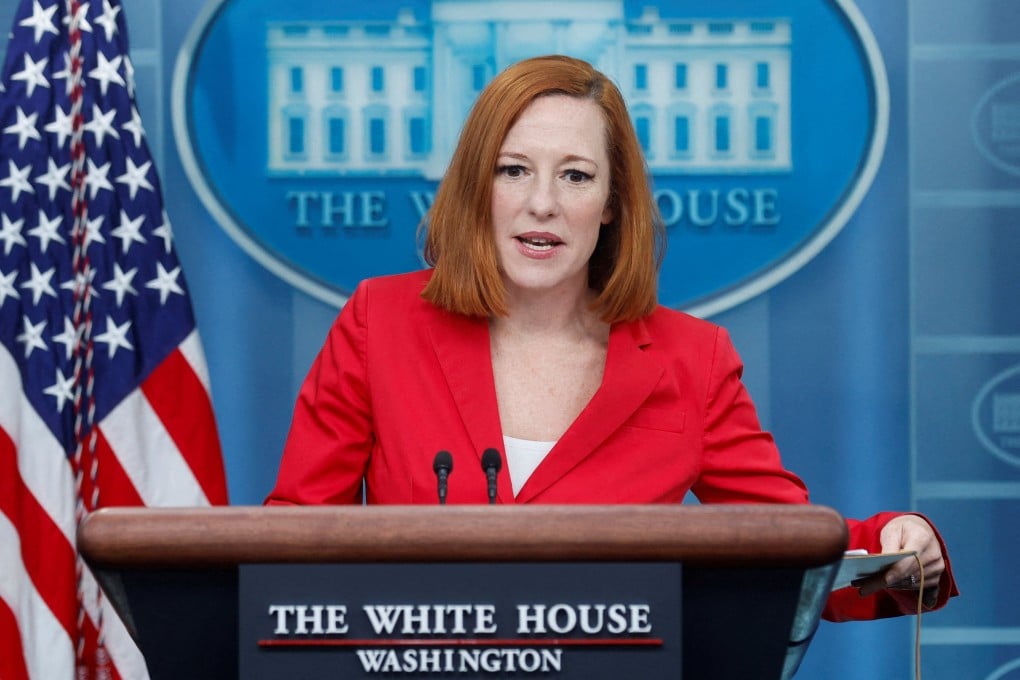Ukraine bioweapons claim opens new front in China-US tensions
- Washington hits back at Beijing for echoing Russia’s ‘preposterous’ allegation of a US-funded Ukrainian biological warfare programme
- Row has echoes of previous dispute between US and Chinese officials over the origins of the coronavirus

Russia’s claims that it uncovered evidence of a US-funded bioweapons programme in Ukraine gained a prominent boost on Tuesday, when a Chinese foreign ministry spokesman urged the US “to give a full account of its biological military activities at home and abroad and subject itself to multilateral verification”.
“This is preposterous,” White House press secretary Jen Psaki said on Wednesday in response to the claims and Beijing’s echoing of them.
As a signatory to the Biological Weapons Convention and Chemical Weapons Convention – two multilateral treaties forbidding the production or deployment of toxin weapons – the US did not develop or possess “such weapons anywhere”, Psaki said in a series of tweets.
“Now that Russia has made these false claims, and China has seemingly endorsed this propaganda, we should all be on the lookout for Russia to possibly use chemical or biological weapons in Ukraine, or to create a false flag operation using them,” she said.